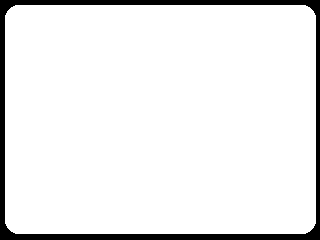GR: Child, Teen |
RT: Approx. 20 Min. Ea. |
Titles: 7 |
$39.95 EA.
DVD SERIES: $265.00
 |
|
This 7-part series on the world’s continents covers all of the basics for age appropriate learners on each of the continents which, when combined, make up the landmass of the planet earth. With a primary focus on the geography of the continents each program also proceeds into the additional cross-curricular disciplines of science, nature and history.
North America
From the North Pole to the Tropics, the North American continent offers a fascinating variety of geographic areas. Beginning with the oceans and adding in the mountains, plains, rivers, deserts and lakes, this program for the early learner, graphically builds the terrain of the North American continent up until it looks just as it does today. This visually exciting program then goes on to show how people and governments have divided the continent into many different countries.
South America
Today we are going to learn more about the Continent of South America. Young viewers will learn that South America is home to the world’s highest waterfall, the world’s largest rain forest, and the world’s longest mountain range. South America is also home to thousands of plants, animals and insects found nowhere else on the planet. Come along as we explore this fascinating continent.
Europe
Today we're going to explore the continent of Europe to help you find out what it's like. As we explore this beautiful continent, we’ll show you where the mountains... the plains... and the rivers are located, and show you other things that make the continent of Europe special. When looking back from space, you can see that much of the continent of Europe consists of several peninsulas. A peninsula is an area of land that sticks out into the water from a much larger land area, kind of like a finger and surrounded on 3 sides by water.
Asia
We're going to explore the continent of Asia to help early learners find out what this fascinating place is really like. As we cover this vast area, we’ll use colorful graphics to show where the mountains... the plains... and the rivers are located. We’ll also show our young geographers other important things that make the Asian continent unique. Before ending, we’ll have built the continent up from a flat piece of land, adding each feature - one by one - until it looks just as it does today. A short review reinforces important concepts.
Africa
Africa is a land located right on the Equator, the middle belt of earth. So much of Africa is warm. Many people believe that Africa is just one big jungle, but because we are learning to read a map we can see that the dark green areas of jungle and forest are found mostly along the Equator. Africa is the world’s second largest continent, and in this visually exciting program we’ll learn about the mountains, deserts, savannahs, jungles and animals that make Africa so unique.
Antarctica
Young explorers will lean that Antarctica has many of the same features as any other continent on our planet earth. In fact, this barren continent has one of the largest mountain ranges in the world. Antarctica takes the prize for being the highest, coldest, and windiest continent on earth. It's also the driest. Under all that ice is one of the largest deserts on our planet! Still viewers will agree, that the snow covered icy landscape helps to make Antarctica one of the most beautiful places on earth. Antarctica!
Australia
Youngsters learn that Australia is completely surrounded by water. It’s also the only landmass on earth that is a continent, a country, as well as an island. Just offshore, in the Pacific Ocean on the Northeast corner of Australia lies one of the natural wonders of the world, called the Great Barrier Reef, the largest coral reef in the world. But Australia is a continent of amazing things…like the strange animals that live there. Many of them live only on the Australian continent and nowhere else in the world. Australia is a very special place.
Chaptered Topics Include:
*World Location
*Geology / Geography
*Seas And Oceans
*Highest And Lowest Points
*Major Natural Resources
*Primary Ethnicity
*Most Populated Areas